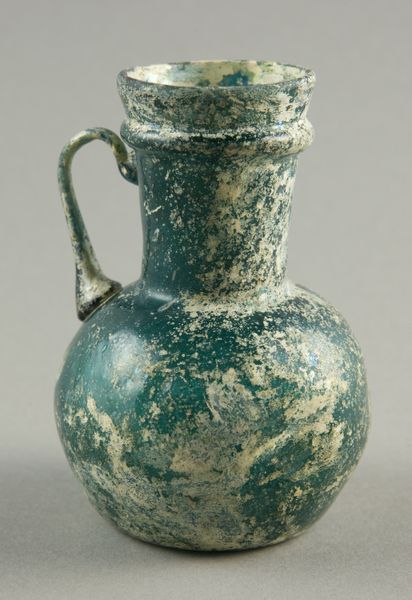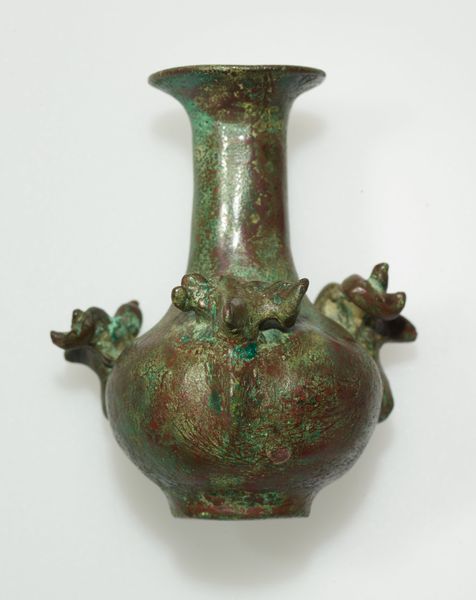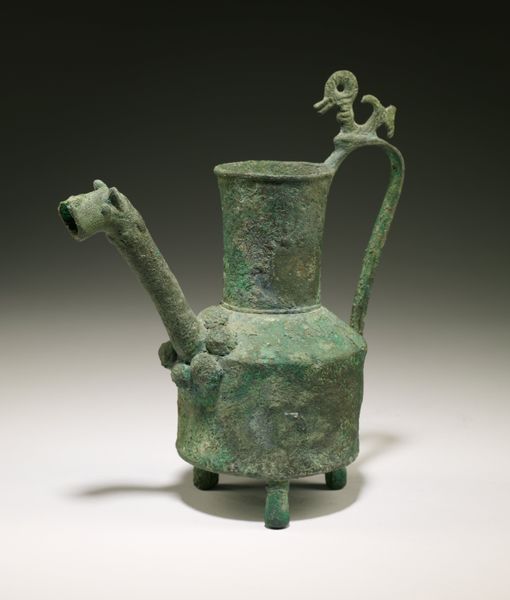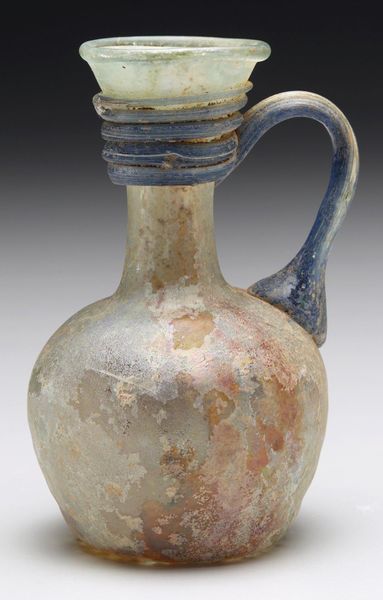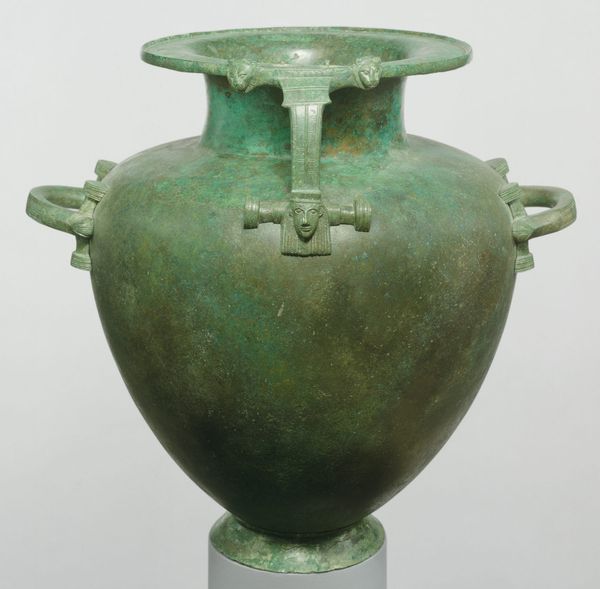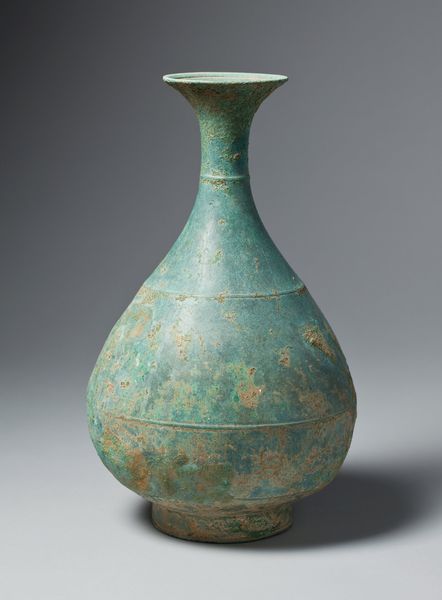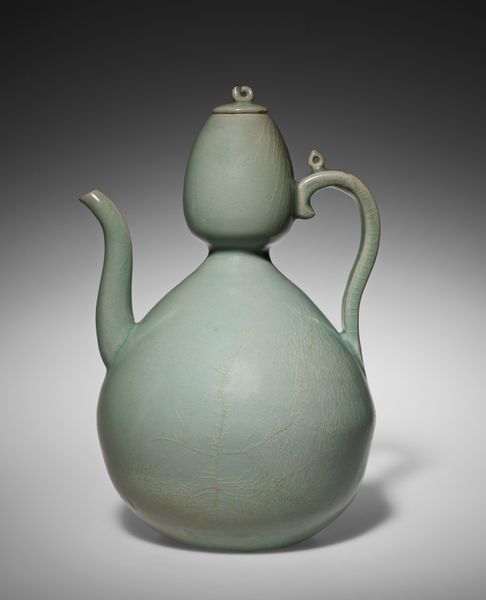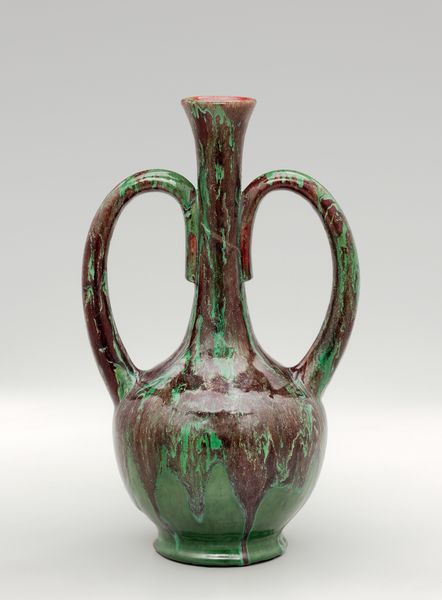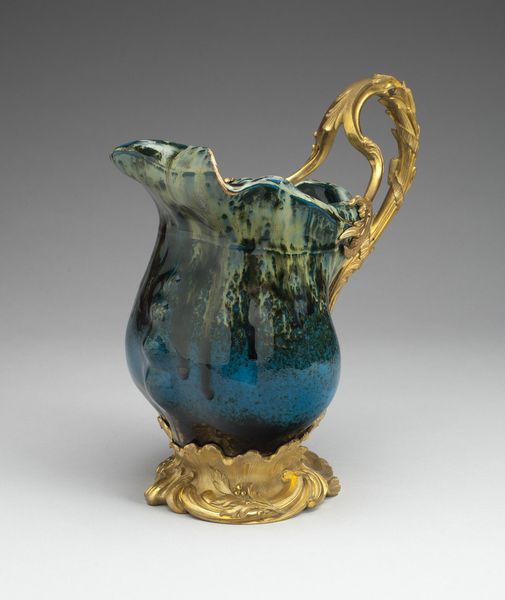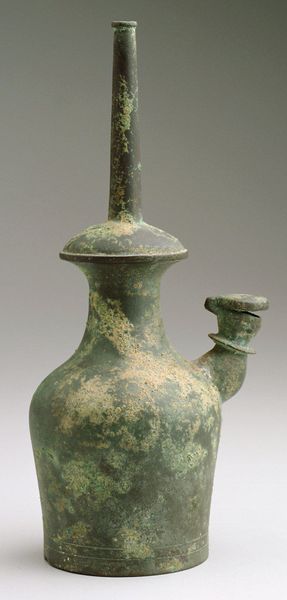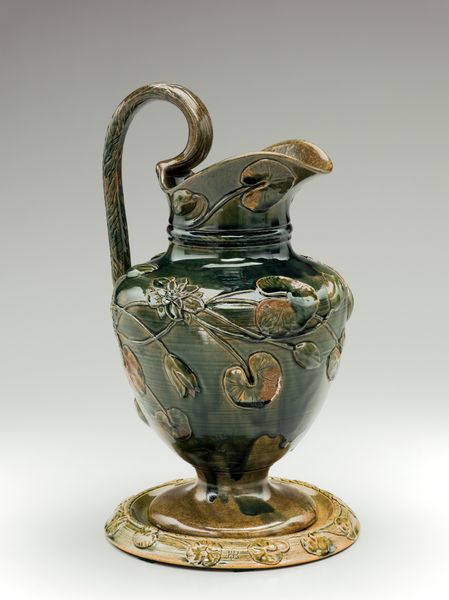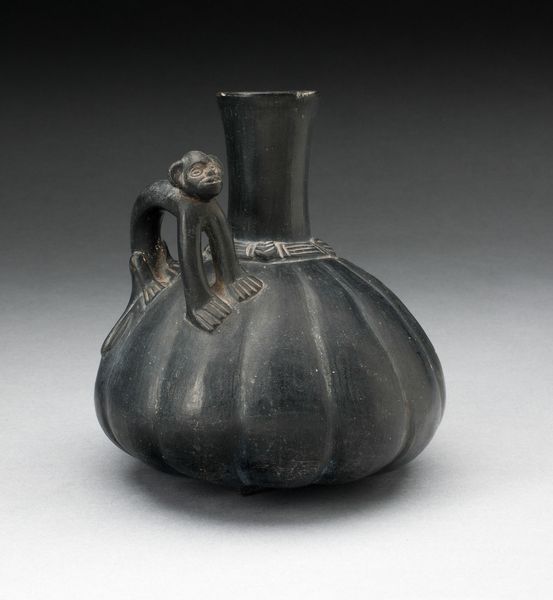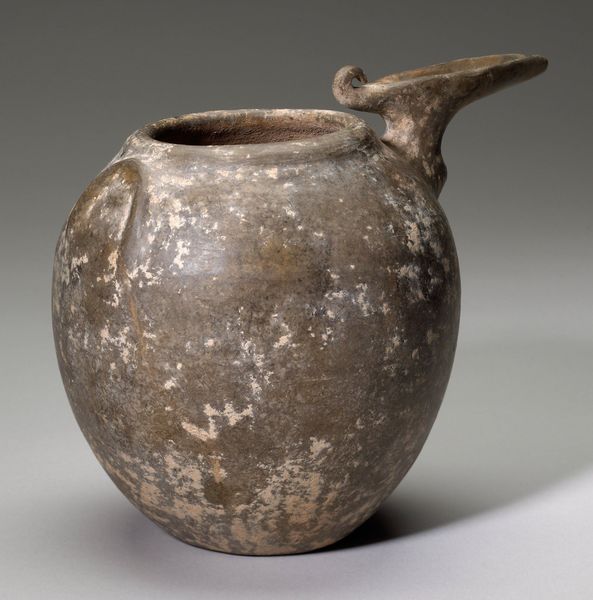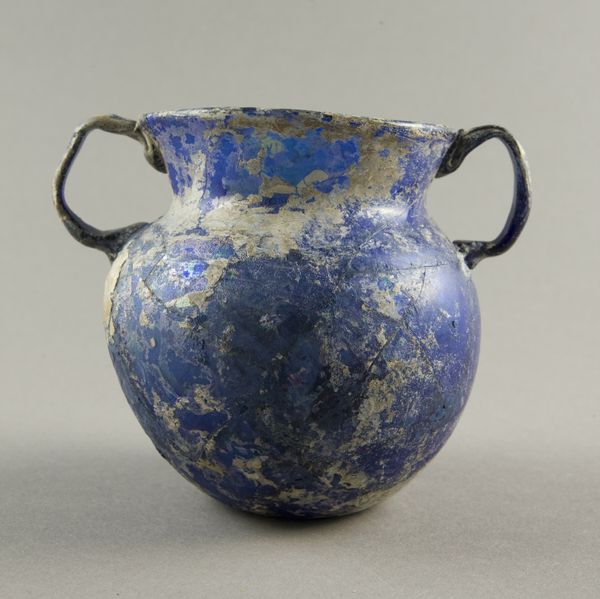
ceramic
#
3d sculpting
#
egg art
#
3d printed part
#
war
#
product fashion photography
#
ceramic
#
jewelry design
#
vase
#
food illustration
#
stoneware
#
wash background
#
ceramic
#
watercolour illustration
Copyright: Public domain
This ancient Greek Oinochoe was formed from bronze, likely sometime between 900 and 31 BC, and is a testament to the enduring qualities of metalwork. The making of bronze objects in this era was an involved, specialized process, essential to all aspects of society. The jug's form is suggestive of how it was made. The body was likely hammered into shape, while elements like the spout and handle were cast separately using the lost-wax method. These parts were then joined to create a single vessel. Bronze’s inherent qualities – its weight, durability, and capacity to be worked into intricate shapes – made it an ideal material for both functional and decorative objects. The green patination is not original to the piece. It occurred over centuries of burial, proof of bronze’s capacity to last millennia, albeit with a changing surface. Appreciating the skill of its construction allows us to consider the crucial role of craft in ancient societies, rather than strictly separating ‘art’ from ‘artifact’.
Comments
No comments
Be the first to comment and join the conversation on the ultimate creative platform.
